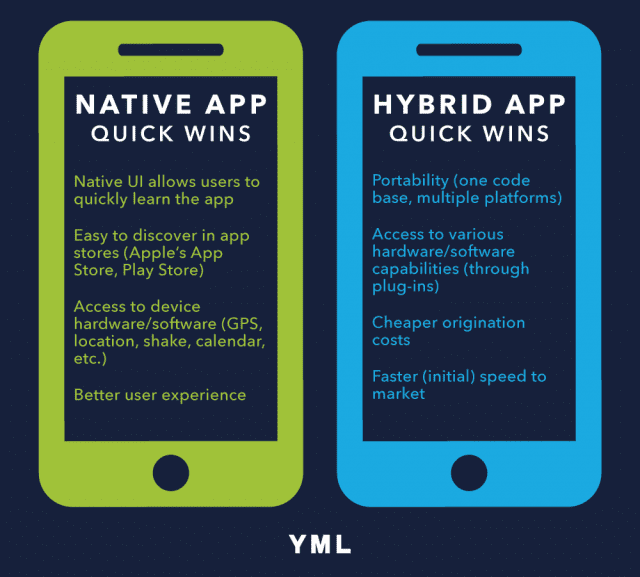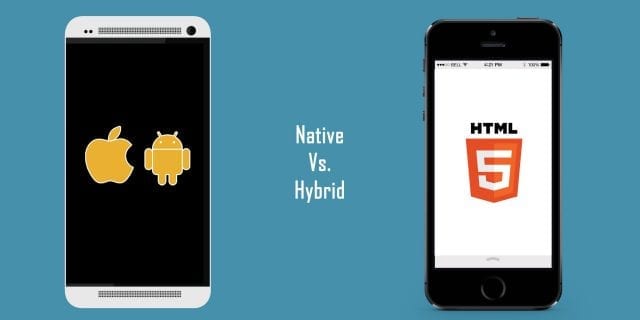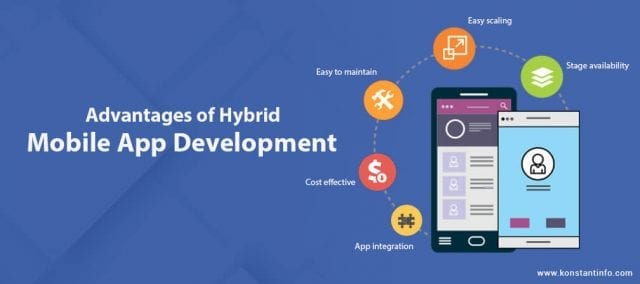
When you’re planning an app development project, there are plenty of considerations you’ll have to keep in mind and decisions you’ll have to make. Many of these decisions can have a significant impact not only on the ultimate functionalities of the app but the costs of development as well.
One decision is whether you’ll do a hybrid or a native app.
The following are some things to keep in mind as you compare a hybrid and a native app and decide which is right for your project.

An Overview
According to app development company Buildfire, which offers the tools to create high-performance apps within a budget, a native app is built for a specific operating system. This means a native app is going to be built either for iOS or Android, and it’s then downloaded from an app store.
A native app offers a high-level user experience in most cases, but the app can’t be downloaded on different devices unless you have two separate versions.
A hybrid offers simpler development, and it’s written in only one programming language. It can operate on multiple platforms, and the functionality is similar to what’s seen with a native app.
What Are the Downsides of Native Apps?

There are positives of developing native apps, but as with anything downsides to consider as well. Of course, the primary downside of a native app is the fact that it only works on one operating system, so you have to decide which to go with.
If your customers are primarily on one operating system and you know this for a fact, it may not be that relevant. However, if they aren’t or you want an app for both, you’re going to have to develop two separate apps.
That means starting entirely from scratch in the development process. This means it’s going to take twice as much time and money to get the app to market if you wait for both to be ready before launching.
If you’ve done thorough research and you know the operating system your targeted audience is using, you can still go with a native app without developing two separate apps.
Native apps also require coding for development and unless you know how to code, that means you’ll have to work with a developer or a firm.
While there are downsides to native apps, you also have to consider the benefits. One big one is the fact that since the app is developed for a specific operating system, its functionality and the overall look and feel seem to fit well within the operating system. The user will likely find that a native app has a more intuitive interface and they’ll feel like the way they use it is more natural.
The Benefits of a Hybrid App

So, when it comes to functionality, costs and the time to develop it, a native app might give you pause. That could leave you looking at the hybrid app option.
As was touched on, a hybrid app will work on all operating systems including iOS and Android. You can make one app and it’s going to be available on both the Google Play Store and the App Store. You’re not limited in who you’re going to reach, at least not in terms of what device someone is using.
A hybrid app can also be developed in a much shorter timeframe than a native app. The reason for this is the fact that the coding is simpler, and it’s web-based. You can build a hybrid app on your own without coding expertise.
This also allows people to quickly and inexpensively develop versions of their app they can beta test to refine the finished product.
Another reason to consider a hybrid app over a native app is the simplified way updates are handled. With a native app, users might not get the changes unless they download the new version of the app. With a hybrid app, changes and updates are made automatically and users have access to the changes as soon as they open the app.
A hybrid app is developed based on web technology, so if you have a hybrid app, it can be run on a browser or a Progressive Web App.
The decision between a hybrid and native app can be a difficult one. Primary things to consider as you’re making the decision include your budget and timeline, how much you can dedicate to maintenance, and what your users will ultimately prefer.
………..





